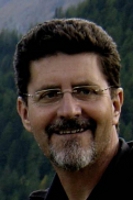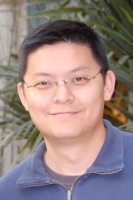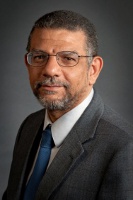Fall 2010

Mohd Anwar
October 8, 2010
Speaker: Mohd Anwar
Visiting Scholar
School of Information Sciences, University of Pittsburgh
Title
Managing Privacy, Security and Trust in E-Learning and Social Networks
Time/Location
12:00pm
Information Sciences Building, Room 404

John Zic
October 22, 2010
Speaker: John Zic
Visiting Associate Professor
Schools of Computer Science and Engineering, UNSW
Title
Trust in the Smart Grid
Time/Location
12:00pm
Information Sciences Building, Room 404
Abstract:
There has been a lot of attention recently paid to the privacy and security aspects of Smart Grids, and rightly so -- the Electric Power Research Institute has identified some 82 vulnerabilities of smart grid systems, covering three major threat categories: People, procedure and policy; Physical Platform; and Network vulnerabilities. Systems are currently being designed specifically to address these issues.
This talk will put forward the case that trust needs to become a first class citizen, along with privacy and security. Without trust, privacy and security mechanisms and technologies can only offer partial, incomplete solutions to the issues facing the Smart Grid.
Biography:
Dr. John Zic is a Research Team and Science Leader for Trusted Systems in the CSIRO ICT Centre. He holds a Visiting Associate Professor position in the Schools of Computer Science and Engineering at UNSW. Prior to this position, he was Acting Research Director for the laboratory for two years. He has also held research positions at Motorola's Australian Research Centre from 1999 to 2003, has taught networking, advanced networking, and concurrent computing at undergraduate and postgraduate levels from 1982 to 1999 as lecturer in charge and tutor. He has been involved in networking research, from ALOHA experiment days, through to the development of the first diffuse infrared wireless LAN and onto IPv6 and home networking research. His research interest is in security and privacy and the application of design and modeling techniques to protocol verification, validation and analysis.
Home Page:

Felix Wu
November 18, 2010
Speaker: Felix Wu
Professor of Computer Science
UC Davis
Title
On Leveraging Social Informatics for Cyber Security
Time/Location
Coffee: 3:00pm
Talk: 3:30pm
Information Sciences Building, Room 501
Abstract:
A fundamental challenge of trustworthy computing is to develop a systematic and yet practical/usable approach on determining whether or not, and how much a piece of information (e.g., software program or information content) should be trusted. The focus of this talk is our trust management architecture, called DSL (Davis Social Links) based on social informatics, i.e., information about human social relationships and the interactions based on those relationships. Under the DSL architecture, we will discuss how to enhance the trustworthiness of distributed applications running on top of today's Internet, and furthermore, how to re-design a brand new trustworthy Internet architecture based on social informatics.
Biography:
Felix Wu is currently a Professor of Computer Science at UC Davis. He has been doing 'experimental' system research, i.e., building prototype systems to justify and validate novel architectural concepts. Since 1995, he and his students/postdocs have built many experimental systems in the areas of fault tolerant network, IPSec/VPN security policy, attack source tracing, wireless network security, intrusion detection and response, and online social network systems. His research has made real impacts to the Internet community. As an example, in 1996, his research team discovered and announced a critical flaw on most commercial OSPF (Open Shortest Path First) routers. In 2000, when DDoS (Distributed Denial of Services) attacks disabled many commercial web sites, his IPSec-based DECIDUOUS (DECentralized IDentification of intrUsion sOUrceS) system brought several attentions by demonstrating its capability to partition DDoS attack flows. His most recent works are (1) developing new virtual machine technologies to enhance system security, and (2) leveraging online social network as the key to re-design the Internet architecture (the DSL project: Davis Social Links). The latter is currently being supported by NSF/FIND, NSF/BBN/GENI, US. Army/ARO MURI, and the newly awarded ARL's Network Science CTA. Prof. Wu received his BS from Tunghai University, Taiwan, in 1985, and PhD from Columbia University in 1995, all in Computer Science. He currently has 100+ conference and journal publications.
Home Page

Ben Y. Zhao
November 19, 2010
Speaker: Ben Y. Zhao
Associate Professor
Department of Computer Science, UC Santa Barbara
Title
Detecting and Characterizing Spam Campaigns in Online Social Networks
Time/Location
Coffee: 11:30am
Talk: 12:00pm
Information Sciences Building, Room 404
Abstract:
Online social networks (OSNs) are exceptionally useful collaboration and communication tools for millions of users worldwide. Unfortunately, in the wrong hands, they can also become extremely effective tools for delivering spam and spreading malicious content. A user is much more likely to respond to messages from a Facebook friend than those from strangers. In fact, existing evidence shows malicious entities are already attempting to compromise OSN account credentials to support these "high-return" spam campaigns.
In this talk, I will present results of an initial study to quantify and characterize spam campaigns launched in online social networks. We study a large anonymized dataset of asynchronous "wall" messages between users of the Facebook social network. We analyze all wall messages received by roughly 3.5 million Facebook users (more than 187 million messages in all), and use a set of automated techniques to detect and characterize coordinated spam campaigns on Facebook. Our system detected over 167K malicious wall posts with embedded URLs, traced back to roughly 44K accounts. We find that more than 70% of all malicious wall posts are advertising phishing sites. We study the characteristics of malicious accounts, and see that more than 97% of all malicious accounts are compromised accounts, rather than "fake" accounts created for spamming. Finally, I will briefly summarize some of the other projects at my lab related to OSN measurements, modeling, and privacy issues.
Biography:
Ben Y. Zhao is currently an Associate Professor at the Computer Science department, U. C. Santa Barbara. He completed his M.S. and Ph.D. degrees in Computer Science at U.C. Berkeley (2000, 2004), and his B.S. from Yale University (1997). He is a recipient of the National Science Foundation's CAREER award, MIT Technology Review's TR-35 Award (Young Innovators Under 35), and ComputerWorld Magazine's Top 40 Technology Innovators award. His research spans areas of security and privacy, networked and distributed systems, wireless networks and data-intensive computing. Most recently, he has spent most of his time measuring, analyzing, and modeling online social networks, as well as studying systems issues in dynamic spectrum access networks.
Home Page:

Mohamed Eltoweissy
November 22, 2010
Speaker: Mohamed Eltoweissy
Chief Scientist of Secure Cyber Systems
Pacific Northwest National Laboratory
Title
BioSENSE: Biologically-inspired Secure Elastic Networked Sensor Environment
Time/Location
Coffee: 10:15am
Talk: 10:45am
Information Sciences Building, Room 501
Abstract:
The essence of smart pervasive cyber-physical environments (CPEs) is to enhance the dependability, security and efficiency of their encompassing systems and infrastructures and their services. In CPEs, interactive information resources are gracefully integrated and coordinated with physical resources to better serve human users. To bridge the interaction gap between users and the physical environment, a CPE is instrumented with a large number of small devices, called sensor nodes (or sensors, for short) that are capable of sensing, computing and communicating. Sensors should autonomously organize to furnish real-time, high fidelity information to their users. CPEs with their associated networked sensors promise aware services for smart systems and infrastructures with the potential to improve the quality of numerous application domains, in particular mission-critical domains ranging from healthcare and transportation to national defense, law enforcement and public safety.
In this talk, I will present BioSENSE: a Biologically-inspired Secure Elastic Networked Sensor Environment that synergistically integrates: (1) a novel bio-inspired construction of adaptive system building components, (2) associative routing framework with extensible adaptable criteria-based addressing of resources, and (3) management of multi-dimensional software diversity and trust-based variant hot shuffling. BioSENSE touts the following advantages: (1) on-demand, online distribution and adaptive allocation of services and physical resources shared among multiple long-lived applications with dynamic missions and quality of service requirements, (2) structural, functional, and performance adaptation to dynamic network scales, contexts and topologies, (3) moving target defense of system software, and (4) autonomic fault recovery.
Biography:
Dr. Mohamed Eltoweissy is a Chief Scientist of Secure Cyber Systems at the Pacific Northwest National Laboratory and adjunct Professor of ECE and CS at Virginia Tech. Before joining PNNL, Eltoweissy was with The Bradley Department of Electrical and Computer Engineering at Virginia Tech where he also held a courtesy appointment in the Department of Computer Science. His current research interests crosscuts the areas of security and trust, network architecture and protocols, and distributed cooperative systems and clouds for large-scale ubiquitous cyber-physical systems. Eltoweissy's recent contributions include elastic context-aware shared sensor-actuator networks, concern-oriented reference model and bio-inspired architecture for trustworthy future networks, dynamic key management for sensor and ad-hoc networks, and reputation management in ad hoc networks and service environments. Eltoweissy serves on the editorial board of IEEE Transactions on Computers, and he has and continues to participate in the leadership and organization of numerous conferences and workshops such as the NSF-sponsored Workshop on Cooperative Autonomous Resilient Defenses in Cyberspace (CyberCARD'2011). Eltoweissy is a senior member of IEEE and a senior member of ACM. In 2003, Eltoweissy received the nomination for the Virginia SCHEV Outstanding Faculty Awards, the highest honor for faculty in Virginia. Eltoweissy received his Ph.D. in Computer Science from Old Dominion University in 1993 and his M.S. and B.S in Computer Engineering from Alexandria University, Egypt in 1989 and 1986, respectively.







